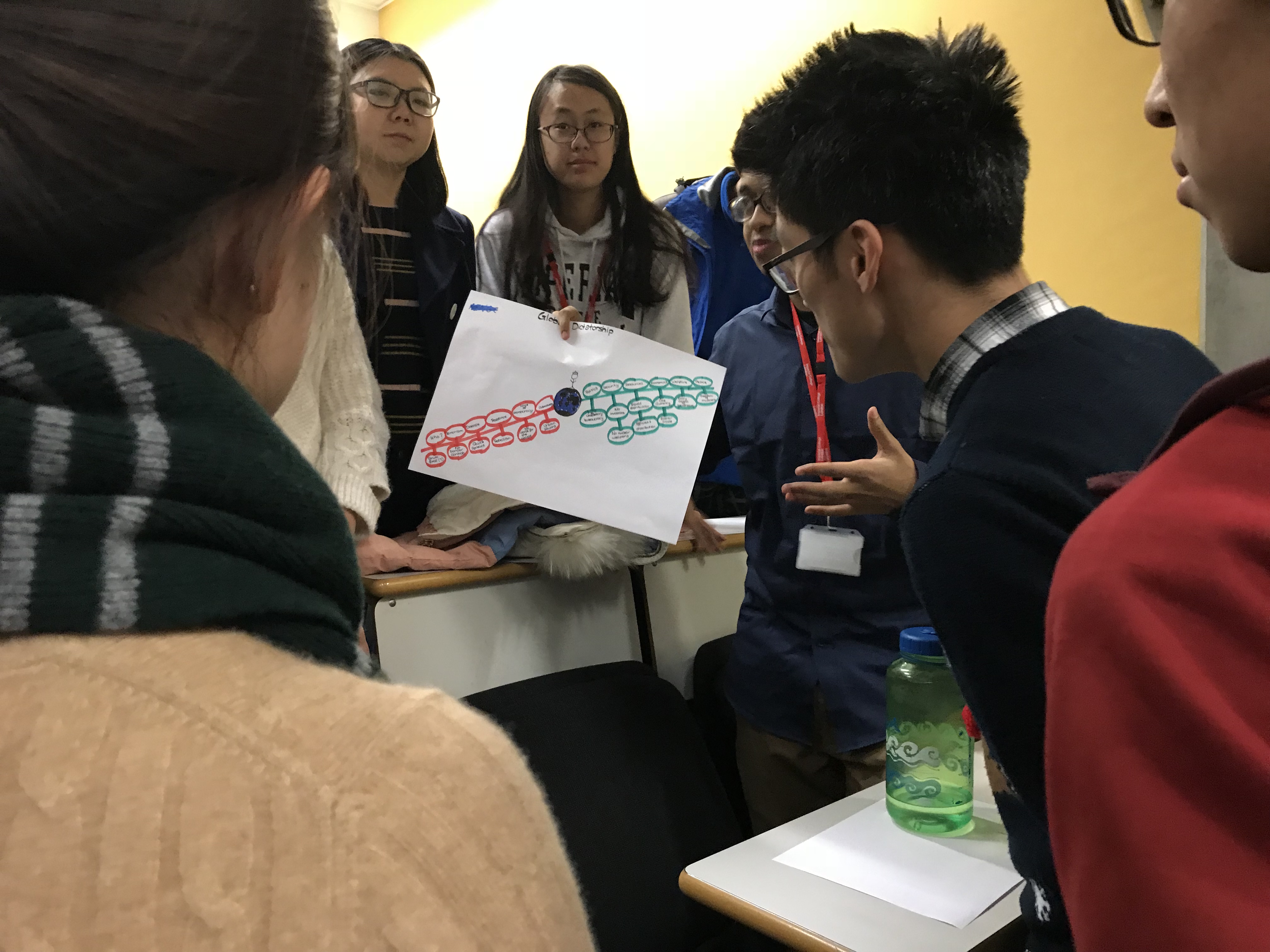Over the last year, we have been developing and trialling a ‘skill manual’ with our undergraduate Global Challenges students. We developed the manual to help students explicitly examine their own skill development, and to help them be strategic in their work with us. We have found that students are often unaware of the skills they are developing and using to complete learning tasks. Previous research with our students has shown that students have a greater understanding of their ability and level of skill proficiency after completing our courses – we wanted to see if we could help students actively engage with their own skill development throughout their learning experiences.
The skill manual describes the types of skills that the Live, Love, Learn approach promotes and facilitates, and gives students concrete examples of where those particular skills will be developed, practiced and needed during the courses.
Our skill manuals have been co-developed with students, to better reflect their own skill vocabulary and conceptualisation of necessary and desirable skills. We wanted to approach skills in the way that you might any other element of the curriculum – by finding and building on the students’ existing ideas and abilities. We also wanted to try to move the naming of skills into a positive landscape of achievement and success, rather than a more survival-based vision.
We began the process of developing our manual by mapping all the different skills that a student might employ during each discrete learning experience on each of our courses. This is an example of the type of skill list that we came up with.

This feels a little overwhelming – and many of these items are in fact sets of skills rather than discrete skills in themselves. We then decided to group the skills into five clusters – with the idea being that each learning experience would involve one or two headline skills from each cluster. We thought that this might make the skills more accessible, easier to remember and reflect upon and more amenable to discussion and review.
In the end, after much colour coding, mapping and re-imagining, we came up with the following five skill clusters and descriptors for students:
- Learning Fitness – skills in this category help you to perform well in your studies and make you the best ‘learner’ you can possibly be
- Thinking – skills in this category help you to develop advanced thinking capability. This includes independence of thought and critical thinking.
- Information Handling – skills in this category help you to find, evaluate and analyse different types of information. This includes both library research where you evaluate information produced by other people and empirical research to generate your own data.
- Networking – the skills in this category include communication, collaboration and team working skills
- Imagineering – this category includes skills that will help to make you an effective and fearless problem solver

Each skill cluster has an icon, which tags all the relevant skills as belonging to that cluster. In addition, a list of relevant skills with examples of how those skills might be utilised during the course is included in each section. A headline skill is picked out within each cluster, with additional information and guidance relating to that particular skill, as a ‘Focus On…’ section.
We tested the manual in our first year classes this year, and found that the students were very engaged with the idea of working on these skill clusters. In this class, the students can pick two skills/clusters that they want to focus on for the term, and we weight their class performance mark towards the development of those skills. In particular, the learning fitness cluster seemed to catch the imagination of the class, and nearly all students selected this as a skill to prioritise for the term.
Many students commented on their own skill development in their feedback.
“I am pleased with the progress made throughout the course. I believe my Imagineering and team working skills have improved in particular, especially understanding and supporting the ideas of others. My learning fitness has also improved dramatically throughout the course – I began the course having pulled an all-nighter and I haven’t done that since. I really enjoyed applying the skills back in my own degree course too.”
First Year Undergraduate, The World Today, Global Challenges

One Reply to “Re-Imagining Transferable Skills”